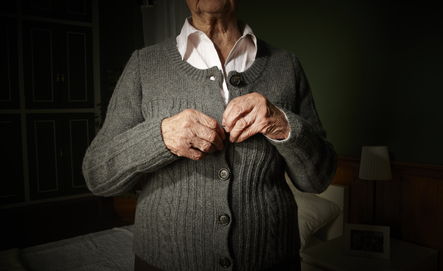The home offers a familiar environment that can help a person with dementia stay connected with the past and maintain their sense of identity. But as the disease progresses and the person’s abilities change, you may have to make some practical adjustments to ensure your home is as dementia-friendly as possible.
Understand and recognize changing abilities
The first step to ensure your home is safe and dementia friendly is to understand and recognize changes in the person’s abilities. Dementia affects each person differently and is progressive, so be on the lookout for changes over time. Some of these changes may include: decreased balance and reaction time, visual and perceptual problems, physical limitations and mobility issues, and declining memory and judgment.
Strike a balance that promotes the person’s current abilities
Making your home dementia-friendly also requires striking a balance between safety and independence. Too many restrictions can make it hard for the person to take part in daily activities that they enjoy. They can also erode the person’s self-confidence and self-esteem.
A good strategy is to try and adapt activities or tasks that reflect and promote the person’s current abilities. For example, if the person enjoys wood-working but can no longer operate power tools, you might encourage them to sand and paint instead. Tailoring activities in this way is a continuous process as the disease progresses.
Be thorough
Some areas of a home may be more hazardous than others. Pay careful attention to the garage, basement and outdoor areas. Focus on prevention – look around for any potential hazards such as carpets that may cause a fall, poisons that are easily accessible, a gas-fire stove top, small objects that could choke and doors that could lock accidentally and trap someone inside.
Complete the home safety checklist
Providing care to a family member with dementia can be exhausting and stressful. It can also affect your ability to anticipate risks or harm that may occur. The following home-safety checklist will help keep you on track:
- Should throw rugs be put away and the carpet secured to prevent slips and falls?
- Are the stairways safe?
- Can the person in your care safely use electric appliances in the kitchen and bathroom?
- Should the temperature of the hot-water heater be lowered?
- Are there any items such as mirrors, pictures and wall hangings that can confuse the person with dementia?
- Are there medications, cleaning and gardening products that should be securely stored?
- If the person with dementia smokes, do they need supervision or should the lighter and matches be taken away?
- Should some doors be locked or should the position of the lock be changed?
- Should safety equipment such as grab bars, elevated toilet seats or non-slip mats be installed in the bathroom?
- Does the lighting in your home sufficiently eliminate shadows that may cause confusion?
To learn more about home safety or to connect with your local Alzheimer Society for help and support, visit http://www.alzheimer.ca/




